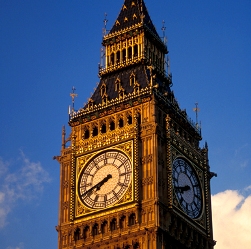 Will anyone put the coal in coalition? Nic Bilham, Head of Strategy and External Relations, reads the runes for science and the new politics.
Will anyone put the coal in coalition? Nic Bilham, Head of Strategy and External Relations, reads the runes for science and the new politics.
Geoscientist 20.7 July 2010
During the general election campaign this spring – and the months of unofficial campaigning that preceded it – the Society worked closely with other societies and institutions to ensure that science and engineering issues were on the political agenda. These issues included research funding, skills needs and education policy, the role of the science base in shaping the economic recovery, scientific advice to government, libel law reform and others. The Campaign for Science and Engineering (CaSE, formerly “Save British Science”) were particularly effective in getting politicians to engage with these issues, and in building genuine collaboration and momentum among scientific societies and other bodies – a community that has struggled to work together effectively in the past, and whose message has suffered as a result. The involvement of the Royal Society in these collaborative projects (not something which could historically be taken for granted), and especially their enthusiasm to include others in taking forward their own major pre-election report ‘The Scientific Century’, also advances the cause of effective communication between the science and engineering community and government.
Continuing and developing dialogue with government is essential. Make what you will of the claim that we are witnessing the dawning of a ‘new politics’, but awkward questions will not go away. The Society must build on its relationships with CaSE, the Royal Society, the Royal Society of Chemistry and many others in working to our shared goals in terms of policy for science. But we are also uniquely placed, as a Society and as a geoscience community, to offer science for policy. Earth scientists must play a major role in addressing some of the fundamental societal and economic challenges of the 21st Century. It is incumbent on the Society – where Earth scientists from industry, academia and government come together – to communicate to policy makers and other non-specialists the scientific debate which goes on within the walls of Burlington House and the pages of our publications, and why they matter so much. We must also help politicians and officials to access appropriate advice from Earth scientists.
We have made good progress in developing relationships with policy communities, especially over radioactive waste management and carbon capture and storage, alongside our expanded education and outreach activities. We are starting to plan work on other major policy challenges, including management of water and mineral resources, sea-level change and management of the coastal zone, and land use (including flooding and remediation of contaminated land). With Council and colleagues, I am currently developing a science-led communications strategy, as a central component of the Society’s next three-year business plan, to ensure that our work with policy makers and other non-specialist audiences is coordinated, well targeted, and built on excellent science.